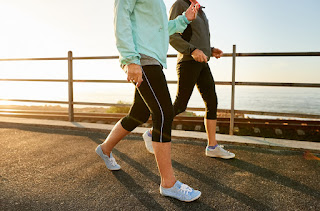Changing your life: The power of our thoughts
%20(1).jpg)
It happens to all of us, this desire for change, for novelty, for freshness. To wake up one morning, faced with everyday life, faced with routine, with the same day passing by, again and again, and to say to ourselves, "It seems that today, I'm going to change my life."
It's not always something drastic, we don't have this thought and 'poof' we throw everything away, we start from scratch, we sell the house, we leave our boyfriend, we start from scratch. Of course not.
We have mental barriers that exist to help us rationalize everything, when this thought arises, when this desire takes hold of our heart, our body, our head.
This thought often scares us too. Like a secret we must keep deep inside, not talk about it, act as if it had never crossed our minds. Guilt suffocates us, because it is our life, and so let's see why we think like this, why are we dissatisfied with what we have?
Yet, this thought is anything but unhealthy. If we take the time to consider it, without judging it, without judging ourselves, it has every reason to exist.
Life moves fast, routine bogs us down, we forget to think about ourselves, our responsibilities take over. It's normal to have this fickle thought of leaving everything behind, starting over, experiencing something different.
Instead of feeling guilty about thinking this way, we can learn a lot about our mental state. Because when we have this image, that of "sacrificing everything," as we say in good Quebec, if we take the time to dissect it, it can offer us a multitude of avenues to improve our daily lives.
Maybe when we think: I'm fed up, I really want something else, it's because we find that the mental load isn't distributed well. We're not fed up with our partner, our children, our life, but we're irritated that certain tasks always fall on our shoulders.
When you're thinking about leaving your job because you want a new challenge: it may really be the call of novelty, but it may also be a good time to evaluate what you need in that job, in those tasks.
Our thoughts come and go, and we can listen to them; we can decide that they lead us to reflect on our lives and how to improve them. And sometimes they are just thoughts, and we shouldn't feel guilty about them, but simply accept them and watch them pass, like water flowing in a river.

.jpg)

.jpeg)
%20(1).jpg)


%20(1).jpg)
%20(1).jpg)
.jpeg)
.jpg)
.jpg)
.jpg)
.jpg)

%20(1).jpg)
.jpg)


.jpg)
%20(1).jpg)
.jpg)
